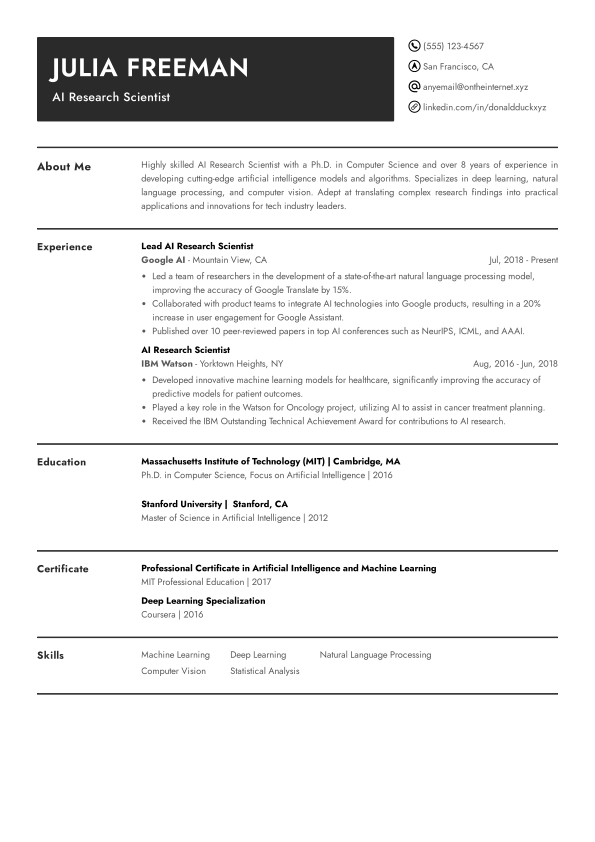
The demand for AI Research Scientists is set to see substantial growth in the coming years. Here’s how to organize your resume, highlighting your skills and accomplishments that will set you apart as an AI Research Scientist.

"Motivated AI Research scientist with a Ph.D. in Computer Science and over 5 years of experience in developing and implementing AI and ML algorithms. Adept at leveraging deep learning and neural networks to drive innovation and solve complex problems. Proven success in leading AI projects that enhanced computational efficiency and accuracy."
Tips for Writing a Strong Resume Summary
Keep it brief: Aim for 3-4 sentences, ideally between 50 – 100 words.
Focus on your most relevant experiences and achievements.
Incorporate keywords from the job description to align with the employer’s expectations.
- Developed a deep learning algorithm that improved computational efficiency by 25%.
- Led a team to design a natural language processing model, enhancing data analysis accuracy by 30%.
- Published research findings in AI in a leading tech journal, contributing to wider understanding and advancements in the field.
Best Practices for Experience Section
Use reverse chronological order, starting with your most recent role.
Include company names, job titles, and dates of employment.
Emphasize accomplishments that align with the job responsibilities.
Technical Skills
Soft Skills
Tips for Skills Section
Use bullet points for clarity and readability.
Tailor your skills to match the job description.
Prioritize the most relevant skills for this role
Tips for Including Courses and Certifications
Creating a professional resume doesn’t have to be daunting. With the right guidance and tools, you can craft a resume that captures your strengths and impresses hiring managers. Use the Careerpilot resume builder and explore our suggested resume templates to get started. With our intuitive platform, you’ll have a polished and customized resume in no time. Start building your resume today and take the first step toward your next career opportunity!
We use cookies to enhance your experience. By continuing to visit this site, you agree to our use of cookies. Not consenting or withdrawing consent, may adversely affect certain features and functions.